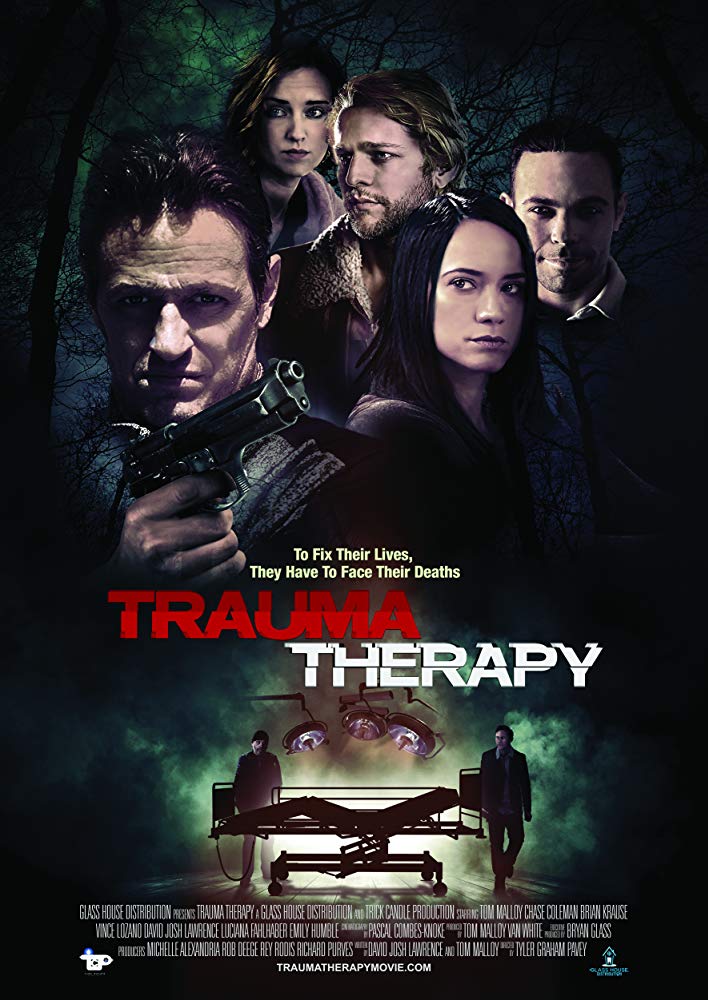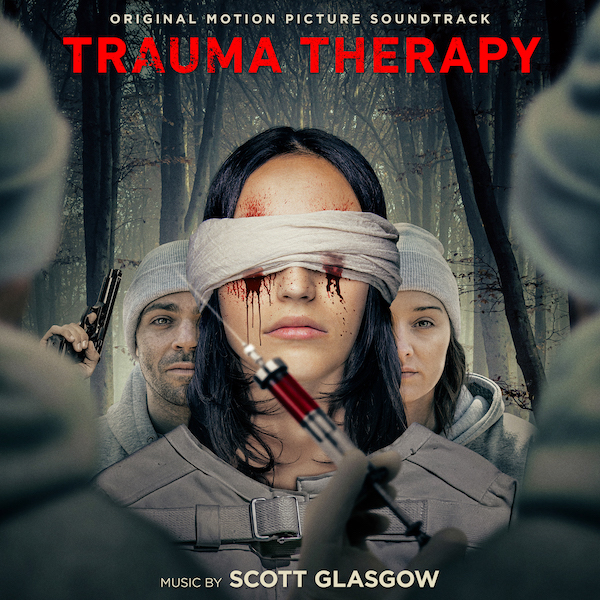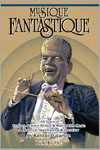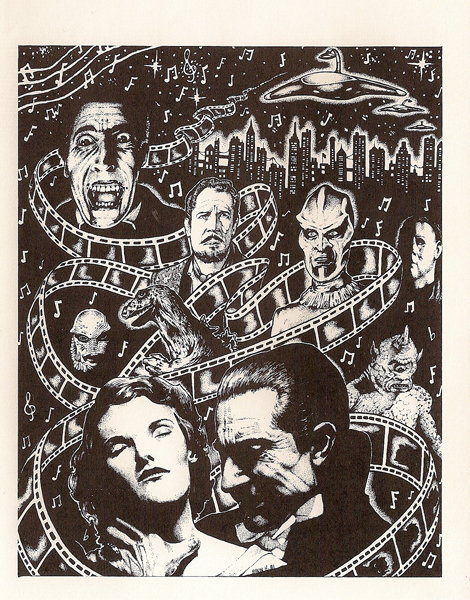October 19, 2019
Scott Glasgow Scores New Thriller TRAUMA THERAPY – Digital Soundtrack Available

At a remote wooded retreat, a group of lost souls attends a self-help seminar lead by famous influencer Tobin Vance. As the guests get pushed further and further by Vance’s extreme program, they begin to confront their personal problems. But as their group therapy sessions become increasingly volatile, they begin to question the methods in spite of the results. What is their guru’s real goal, and will his reckless pursuit of life change moments end up saving them…or destroying them?
Directed by Tyler Graham Pavey (SLEEP AWAY, FIVE GRAND, THE PHOENIX PROJECT), the film stars Tom Malloy, Chase Coleman, Brian Krause, and was released October 8th, 2019 on all major VOD digital streaming services. TRAUMA THERAPY was produced and distributed by Glass House Distribution.
The film features a strikingly tense score by award winning composer Scott Glasgow, whose boutique label Fourteen Kings Music has released the film’s soundtrack album through digital download and streaming services.

“The score to TRAUMA THERAPY is an unapologetic synthesizer based score with some light use of strings, piano, and percussion,” Glasgow said of his score. “The main impetus when starting this project was the fact that a new hardware synth (Korg Minilogue) was purchased for my studio many months. That was the only thing I started with before the picture showed up—then came the development of a few musical ideas mostly for the piano heard in the score. There is one main set of “introspective” chords that shift from minor to major depending on the scene. There is a secondary “optimistic set of chords” and a synth “motive” that returns often. The use of cello in the opening title was more of an afterthought.
“For much of the score, there is a lot of layering of synths—pulsing, bubbling, and churning through as drama unfolds and the story intensifies. One of the standout cues, “Target Practice,” incorporates the well-known musical phenomenon called a “shepard tone,” which has this constant rising tension that never feels like it resolves. By the end of the score a more orchestral thriller sound takes over with these plucked strings played into a “WW II Bunker” (thanks to Bunker Samples) for a unique ambiance also merging with the synths.
“Many of these synth textures were created using software and some were created using hardware like the Korg Minilogue also the Moog Minitaur (the squishy bass lines). If you hear something a little out of tune or a little less consistent flow that is usually the hardware synths which for anyone who has been around these instruments knows they change every day with their knob turns and organic way of tuning. I decided that I liked inconsistencies with the hardware synths because it resembled more of a performance—like an ensemble of musicians— never really playing the same way twice. I embrace these unique instruments in the score to TRAUMA THERAPY.”
To stream or purchase a download of Scott Glasglow’s TRAUMA THERAPY score, see Fourteen Kings Music.
Watch the TRAUMA THERAPY trailer:




